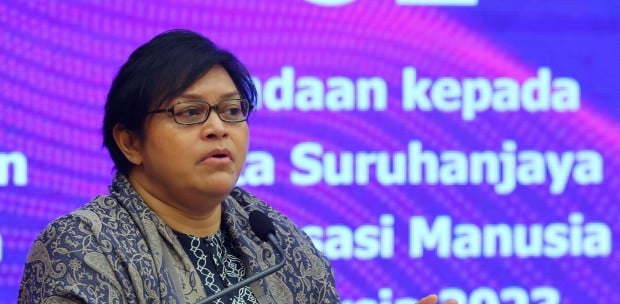These are important times for Malaysia's efforts to enhance its human rights standards in the area of forced labour, human trafficking and the overall working conditions for millions of low- skilled migrant workers.
There is no doubt that the recent events contributed to create momentum, from the Withhold Release Orders by United States Customs and Border Protection against several gloves' producers till investigations in the United Kingdom for similar charges of forced labour against one of these companies.
In addition, one of the top electronics manufacturers whose production in Malaysia was found to have breached multiple serious labour standards.
Lacking in the implementation of human rights standards and contravening them is not just a compliance issue, but a real legal issue and by fault, a moral one.
But, recent actions by the government has been creating an enabling framework to uphold some of the most important human rights provisions.
With Malaysia depositing the ratification of the ILO Protocol of 2014 to the Forced Labour Convention, 1930, there is a real possibility that the country is truly shifting the gears and making human rights' enforcement in the business sector a priority.
This is the context in which The National Action Plan on Forced Labour (NAPFL) 2021-2025 was developed, that also includes an updated version of the National Anti-Trafficking Plan approved also last year.
Moreover, the country is set to approve a National Action Plan on Business and Human Rights in 2023, a process that started back in 2015 when Suhakam (The Human Rights Commission of Malaysia) released a Strategic Framework on a National Action Plan on Business and Human Rights in Malaysia.
Since then, it took four years to formally start this drafting process, and then, last year another stepping stone was achieved with the first National Conference on Business and Human Rights.
Subsequently, how empowered will the civil society organisations and human rights defenders who, persistently and constantly, have been advocating for the respect of the most basic human rights in factories and plantations of the country?
Will big industries from palm oil industry to gloves and electronics really seize the momentum and renew their commitment to usher in a new era of business and human rights?
Will their compliance mechanisms become more and more rigorous? Very recently we saw how effectively the Act 446 (the Workers' Minimum Standards of Housing and Amenities Act 1990) can be used in making industries accountable.
We truly need a whole of nation approach to ensure human rights are respected not only in the big industries, but also in small and medium ones.
The truth is that fixing this is complicated and new legal measure won't be enough. There is a thin line that distinguishes forced labour from other violations and talking about immigration is also central.
Recent Malaysia and Indonesia agreement on one channel system for migrant workers can also be considered a turning point in enabling a new environment of respect and upholding of human rights.
Forced labour, trafficking and child labour do not occur in a vacuum. That's why Malaysia can come up with a different approach that truly puts human rights at the centre of its recovery plans.
If we look at NAPFL 2021-2025 and National Anti-Trafficking Plan, these tools, for being successful and transformative, need a strong awareness and advocacy approach.
On paper, such elements are there, but it will take a lot of effort and creativity to truly enable changes at grassroots levels.
Such changes require discussions, not only at national levels but also locally.
Malaysians need to be involved and interested to help create an inclusive, rights-based approach upon which their future wellbeing will depend.
Malaysia can show stewardship in upholding, what is, after all, the rule of law of the country by not forgetting to put at the centre the victims.
In a recent e-mail, Kamini Visvanathan, an expert in human rights and labour practices, could not be clearer on this.
"We have to ensure that in rushing to comply, we are not forgetting about the main stakeholder here — the people who braved precarious, dangerous and vulnerable spaces to earn a living. The question now is, how are we collectively using this time?
"That will determine our credibility as to whether the country comes out of this with lessons learnt, or we sink further into this black hole."
The author writes on civic engagement, youth development, the Sustainable Development Goals and regional integration in the context of Asia Pacific
The views expressed in this article are the author's own and do not necessarily reflect those of the New Straits Times






